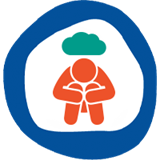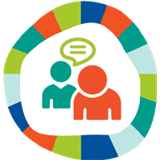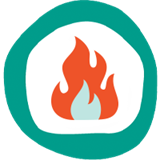You can help all Portlanders survive the freezing temperatures by checking in on neighbors, whether housed or unhoused.
If you are concerned for someone during colder conditions, such as an individual who is not dressed for the weather conditions, call the non-emergency response line at 503-823-3333 and request a welfare check.
Call 911 if someone is showing symptoms of hypothermia: shivering uncontrollably or suffering confusion, slurred speech or drowsiness. Get them somewhere warm and dry.
Call the Aging and Disability Resource Connection (ADRC) hotline at 503-988-3646 for 24-hour information and assistance to older adults, people with disabilities, and caregivers.
Help for people experiencing homelessness
To find your nearest warming shelter or learn about volunteering at a shelter, go to Multnomah County’s “Care for when it’s cold” page.
People seeking shelter can also dial 2-1-1 for the information on shelter locations and if they need transportation to a shelter. All sites are accessible to people with disabilities. Pets are allowed at all locations.
There is also current information on how you can volunteer at a warming shelter.
Go to 211info.org/donations to find lists of providers and their needs for winter gear – hats, coats, gloves, sleeping bags and socks, etc. Many providers include online shopping links along with their lists, making donating more convenient than ever. You can donate right from your phone or computer in just a few minutes. You can help by donating life-saving winter gear early in the season, so outreach teams will have them on hand when conditions turn especially cold.
Working with partners, the Joint Office of Homeless Services (joint effort of the City of Portland and Multnomah County) will monitor conditions and open severe weather shelters when certain thresholds are met.
In addition to the severe-weather beds that open only when certain weather thresholds are met, the Joint Office of Homeless Services also funds more than 1,300 year-round and winter shelter beds open every night during the cold season. These beds are open day after day, no matter the forecast. Other community partners also add winter shelter capacity.
Outreach teams — including those from Transition Projects, JOIN, Janus Youth, Cascadia Behavioral Health and the Multnomah County Sheriff’s Office HOPE team — are also in the community, making contact with vulnerable populations, providing resources and sharing information about severe weather and year-round shelters.
You can also go to tprojects.org and sign up with Transition Projects to train as a warming shelter volunteer. Transition Projects is one of the community partners paid through the Joint Office of Homeless Services to staff severe weather shelters on the coldest or snowiest nights of the year.
Remember, we can make a difference when we work together to keep our neighbors safe, warm and dry this winter.
Our Benson bubbler water fountains are a critical drinking water source for people living outside,but they can be hazardous during cold weather as the water can leak on the sidewalks and freeze. During freezing weather events, we will turn most of them off for safety, but will keep some in operation so that they’re accessible to those that need them.
Road closures and transportation updates
Get the latest severe weather travel tips, road closures, chain advisories and more on the Portland Bureau of Transportation’s Winter Weather webpage. PBOT serves as the City’s hub for real-time information to help you stay safe and get where you need to go during winter weather events.
Check highway conditions before you go at TripCheck.com
Check trimet.org for the latest bus and MAX service information before you go.
Parks and community centers
Are you planning to visit your favorite City park or attend a class or activity at a community or arts center? Check Portland Parks & Recreation’s Inclement Weather Policy and Closures or call 503-823-2533 for information.
Protect plumbing, report water main breaks and other service impacts
Learn how to prepare your home plumbing for winter weather.
Check out The Water Blog for news about winter weather impacts to water. Be our eyes and ears! If you think you’ve spotted a broken main, call our 24-hour emergency line at 503-823-4874. Crews are ready to respond to emergencies, including water main breaks, 24 hours a day, and seven days a week.
Tree emergencies
Portland Parks & Recreation (PP&R) Urban Forestry crews respond to hazardous situations and emergency needs citywide resulting from severe weather in Portland.
Report tree emergencies on City property, including public streets and roads, by calling 503-823-TREE (8733) and pressing 1. If phone lines are busy, consider reporting online using the PDX Reporter website.
For non-emergency, tree-related questions, email trees@portlandoregon.gov
Please be patient. Urban Forestry crews are minimizing safety risks and clearing the largest debris first. Emergency dispatchers are available 24 hours per day, seven days a week.
For info on what constitutes a tree emergency and more info, please visit portland.gov/trees/tree-concerns-and-problems/tree-emergency
Watch this video to learn more about how Urban Forestry crews help you through severe weather.
IMPORTANT:
- If a tree emergency situation involves downed wires please contact your utility provider first. PP&R Urban Forestry staff are unable to respond until electrical hazards have been addressed. For road closures visit PBOT’s webpage.
- Please avoid calling for NON-emergency issues during severe weather as crews are focused on reopening major roads and thoroughfares in Portland and will work their way down into neighborhood streets and roads.
General maintenance involving trees on private property or on adjacent rights-of-way is the responsibility of the property owner, who should call a private arborist for any tree-related issue.
- Large Branches & Trunks:
- For larger branches or stumps, contact your garbage and recycling company to get a cost estimate for a special bulky waste pickup.
- Or find pick-up and drop-off options through Metro’s Find A Recycler tool: type in your home address and search for “branches” or “stumps.” Or call 503-234-3000 to speak with a Metro recycling specialist (Monday – Friday, 8:30 a.m. – 5 p.m.).
- If you see a woodpile that City of Portland crews assembled for later removal; that is standard protocol. It may take weeks for our capacity to allow for staff to remove the debris, as we deal with those more than 700 tree emergencies citywide.
- Small Branches (up to 3 feet long and under 4 inches thick):
- For wood debris on sidewalk, it’s the responsibility of the adjacent property owners.
- If your yard or sidewalk are filled with tree branches after the snow melts, you can fill your green compost bin with branches up to 3 feet long and under 4 inches thick. You can also set out extra bags, bundles or cans of branches for $3.75 per bag, bundle, or can (The maximum size is 32 gallons and 45 pounds per bag/bundle/can)
- Additionally, please consider contacting a Tree Care Provider or lawn care professional to assist with your debris pile.
Flooding
Situated along the Columbia and Willamette rivers with numerous waterways within its borders, Portland is susceptible to flooding, especially during the winter months when we receive most of our rain.
Visit the Flooding in Portland webpage for resources and information on how to prepare and be safe, where Portland’s floodplains are, and what the City is doing for flood prevention.
Home safety advice from Fire & Rescue
Home heating can be a source of many hazards. From electric heaters to wood stoves, there are steps you can take to minimize your risk of a fire. For more information on how you can keep yourself and your loved ones safe in your home during winter weather, visit Portland Fire & Rescue’s Winter Fire Safety Tips or PF&R’s Twitter account for space heater, fireplace and other fire safety tips.
Stay safe when heating rooms in your home. Local fire departments report an uptick in families using space heaters to keep rooms warm. Alternative sources of fuel or electricity for heating or cooking can cause carbon monoxide to build up — in a home, garage, or camper — and to poison the people and animals inside.
Garbage, recycling and compost collection
In case of snow or ice, leave your bins at the curb. Your garbage company will come as soon as they can. Learn more.
Building inspections
Inclement weather may affect some building inspections from the Bureau of Development Services. Check the Bureau of Development Services’ web page and social media channels for the latest information on services affected by snow and ice.
General preparedness for winter weather
Questions on how to prepare for snow, ice, wind, and other winter weather? Visit PublicAlerts.org’s winter weather resource webpage with information on how to stay safe and get help before, during, and after a storm.
Sign up for public emergency alerts
Sign up for public emergency alerts at PublicAlerts so you know when an emergency is happening in the Portland-Vancouver Region. Getting info quickly gives you power to take action. It could save your life and the lives of your loved ones.
Sidewalks should be shoveled
Property owners or tenants are responsible for shoveling the snow and removing ice from in front of their homes and businesses. Check in with neighbors who might need a hand. Some elderly homeowners or people with disabilities may have physical challenges or risk injury in the snow and ice.
The Big Pipe Tracker
The Big Pipe Tracker allows people to see how Portland’s Big Pipe system fills up and prevents combined sewer overflows to the Willamette River. The online gauge, updated every 15 minutes, also lets viewers be the first to know if a rare overflow does occur.





















